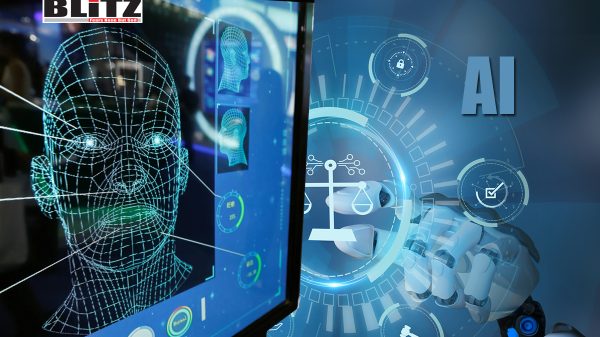How can we address bias in AI for social justice
- Update Time : Saturday, December 21, 2024

Artificial intelligence (AI) has reshaped our world, promising to streamline processes, enhance decision-making, and provide unprecedented precision. However, as we increasingly integrate AI into various facets of society, a glaring issue emerges: bias. Far from being neutral, AI systems often reflect and perpetuate the prejudices embedded within the societies that create them. Tackling AI bias is not just a technical challenge but a profound social and ethical imperative.
AI systems are only as unbiased as the data they are trained on and the individuals who design them. Training datasets often mirror historical inequities, stereotypes, or the exclusion of certain groups, resulting in biased outcomes. For example, a pivotal 2018 study by MIT revealed that facial recognition algorithms exhibited error rates as high as 34.7% for darker-skinned women, compared to just 0.8% for lighter-skinned men. This disparity is more than a technical failing; it’s a reflection of systemic inequalities.
Another significant contributor to AI bias is the lack of diversity among those who develop these technologies. With tech sectors still predominantly homogeneous, the perspectives shaping AI often fail to capture the nuances of diverse user populations. As someone with experience in digital transformation projects, I’ve observed how biases emerge when AI systems lack cultural and linguistic awareness. In one project involving AI-powered customer service tools, the system struggled to understand non-standard accents, creating suboptimal experiences for non-native speakers.
Bias in AI has tangible consequences, especially in critical areas such as hiring, healthcare, law enforcement, and marketing.
In hiring, Amazon’s AI recruiting tool notoriously penalized resumes containing references to women’s colleges or women’s sports teams because it was trained on data from a male-dominated workforce. This perpetuated existing gender disparities in an industry already grappling with inclusivity issues.
Healthcare technologies have also demonstrated bias. For example, pulse oximeters, widely used during the COVID-19 pandemic, were found to be less accurate for individuals with darker skin tones. Such biases can exacerbate health inequities and lead to substandard care for marginalized groups.
In marketing, AI systems often reinforce harmful stereotypes. Fashion brands like Mango have faced criticism for AI-powered campaigns that perpetuate narrow and exclusionary standards of beauty. These examples illustrate how biased AI can reinforce systemic injustices, affecting individuals’ opportunities, health outcomes, and social perceptions.
A common argument suggests that AI bias is inevitable because it mirrors the flawed data it is built upon. While there is truth to the notion that AI systems inherit the biases of their data, this perspective risks oversimplifying the issue. Reducing bias is not merely about refining datasets; it requires understanding and addressing the societal contexts that shape those datasets.
Conversely, some view AI as a potential solution to bias. For instance, AI can be employed to analyze hiring practices, highlight inequities, and suggest more inclusive strategies. In healthcare, AI can identify treatment disparities and recommend equitable interventions. This dual role0-as both a source of bias and a tool for addressing it-underscores the need for careful and intentional AI design.
Addressing AI bias demands a holistic approach that goes beyond technical fixes. It requires systemic changes, thoughtful design, and ethical oversight.
Diverse Teams: AI development must involve individuals from a wide range of backgrounds. Diverse teams bring varied perspectives, enabling them to identify and mitigate potential biases in algorithm design and implementation. Inclusion is not just a moral imperative but a practical necessity for building fair and representative AI systems.
Transparency and Accountability: Algorithms must be interpretable and open to scrutiny. Users should be able to understand how AI systems make decisions and challenge outcomes where necessary. Transparency fosters trust and helps ensure fairness.
Ethical Frameworks: Ethical considerations should be integrated into every stage of AI development. This includes implementing bias detection mechanisms, conducting regular ethical audits, and collaborating with public and private sectors to establish robust guidelines for AI deployment.
Education and Awareness: Building a society that critically engages with AI requires education and media literacy. Equipping individuals and organizations with the tools to recognize AI’s limitations and question its outputs is crucial. Fostering critical thinking ensures that technology serves humanity’s best interests rather than perpetuating inequalities.
Continuous Monitoring: AI systems must be subject to ongoing evaluation to identify and correct biases as they evolve. Bias is not a static issue; it changes with societal norms, data inputs, and usage contexts.
AI is not an independent entity; it is a reflection of its creators and the societies that shape it. Bias in AI challenges us to confront the underlying inequities within our world. Rather than seeing biased algorithms as isolated failures, we must recognize them as indicators of broader societal issues that require systemic solutions.
As someone deeply involved in digital transformation, I’ve witnessed AI’s dual potential. On the one hand, poorly designed systems can entrench existing inequalities. On the other, well-crafted AI can enhance inclusion, improve decision-making, and drive equitable progress. The difference lies in how we choose to approach its development and deployment.
Addressing bias in AI is not merely a technical challenge; it is a societal responsibility. By fostering diversity in development teams, ensuring transparency, integrating ethical principles, and promoting education, we can create AI systems that serve all of humanity.
The journey toward unbiased AI is complex, but it is also an opportunity. By addressing these challenges, we can harness AI’s transformative potential to build a fairer, more inclusive world. The choice is ours: Will we allow AI to reinforce inequality, or will we use it as a tool for justice and progress?
















Leave a Reply